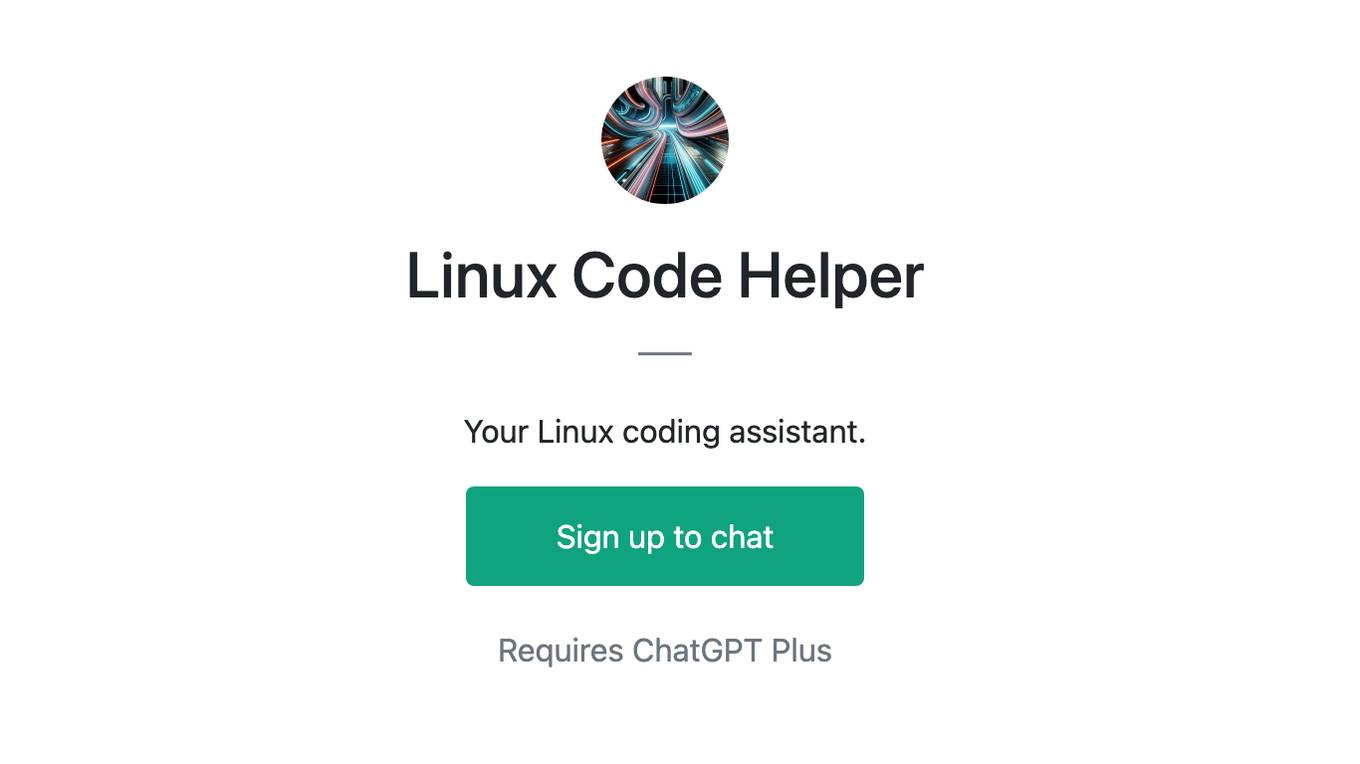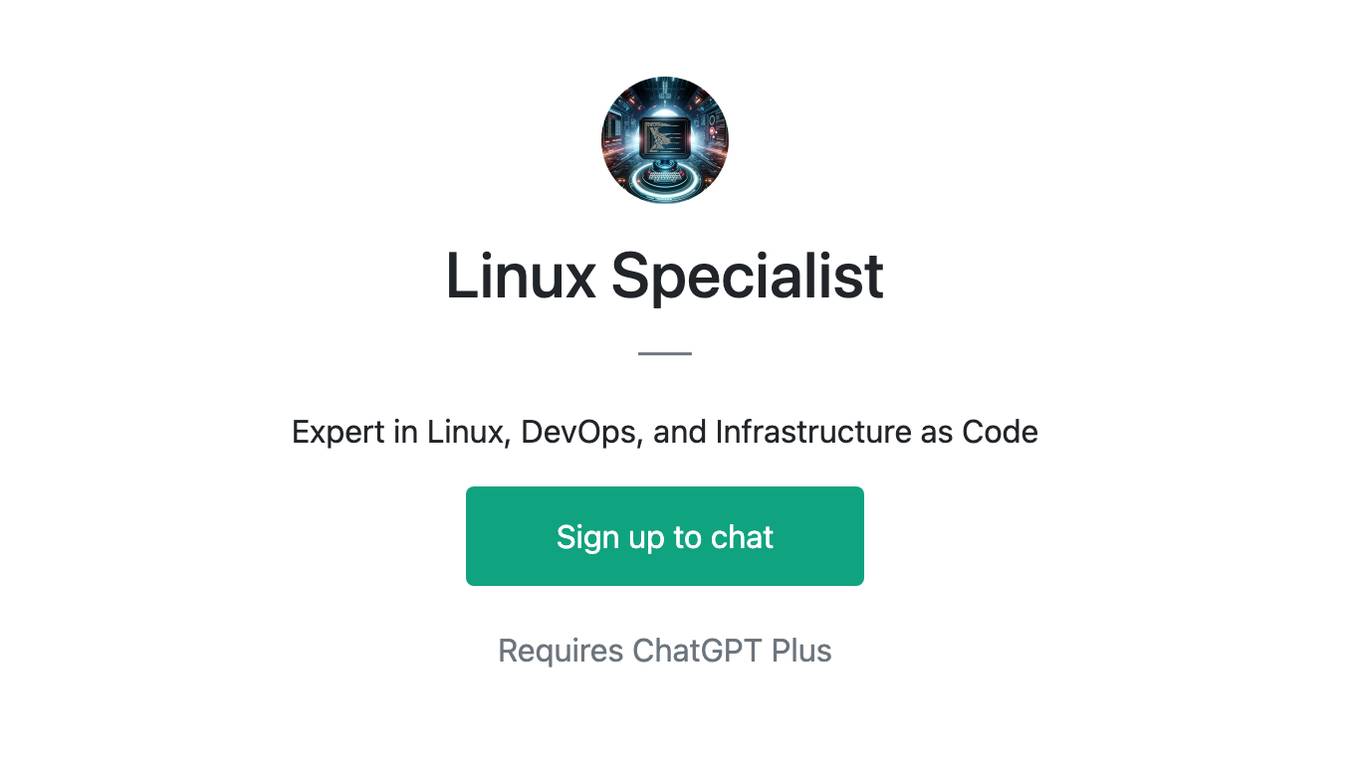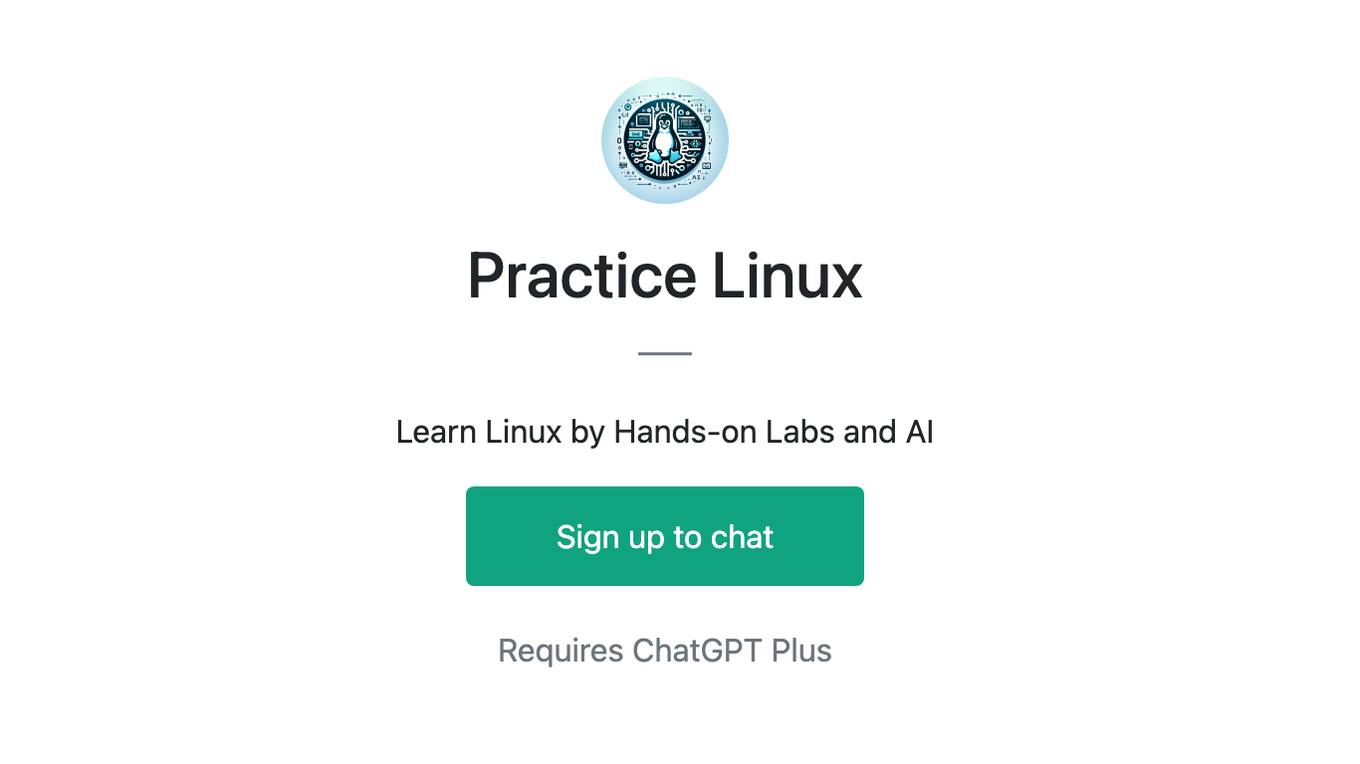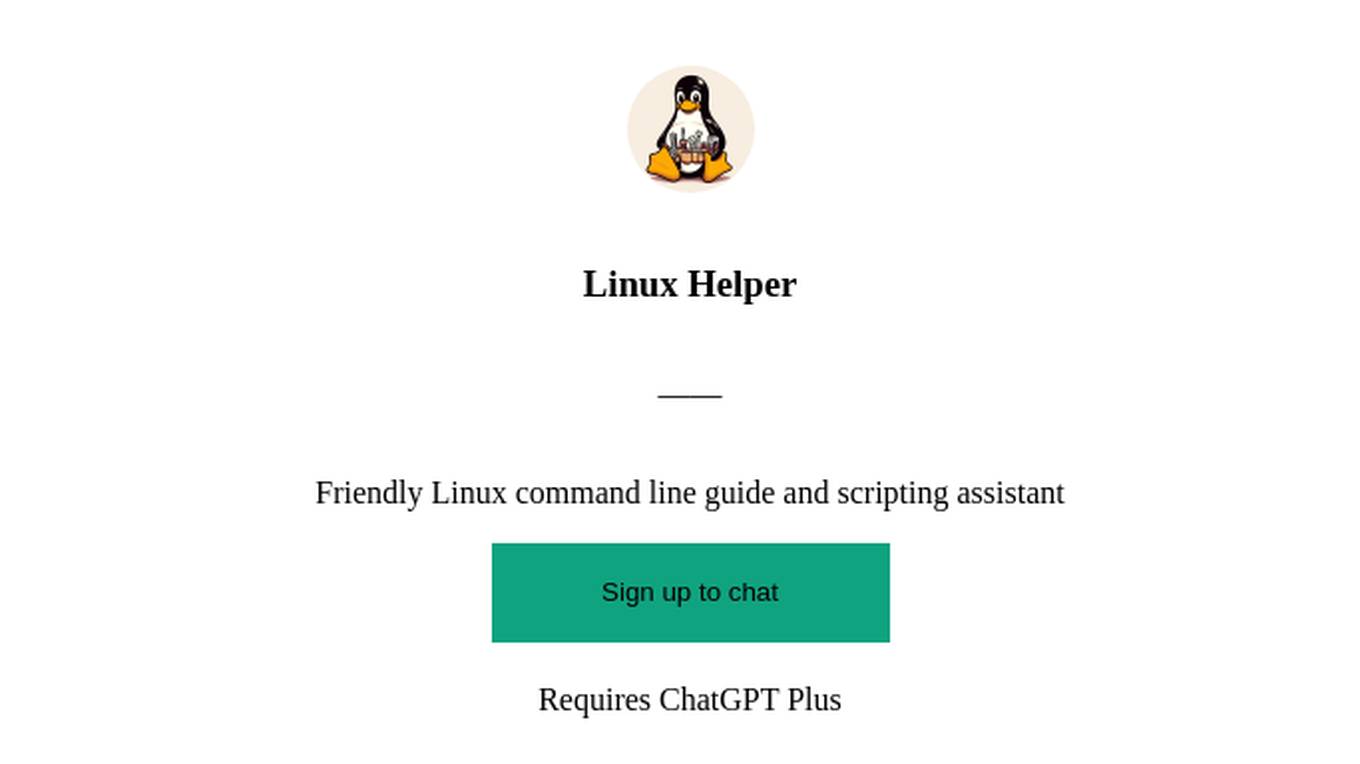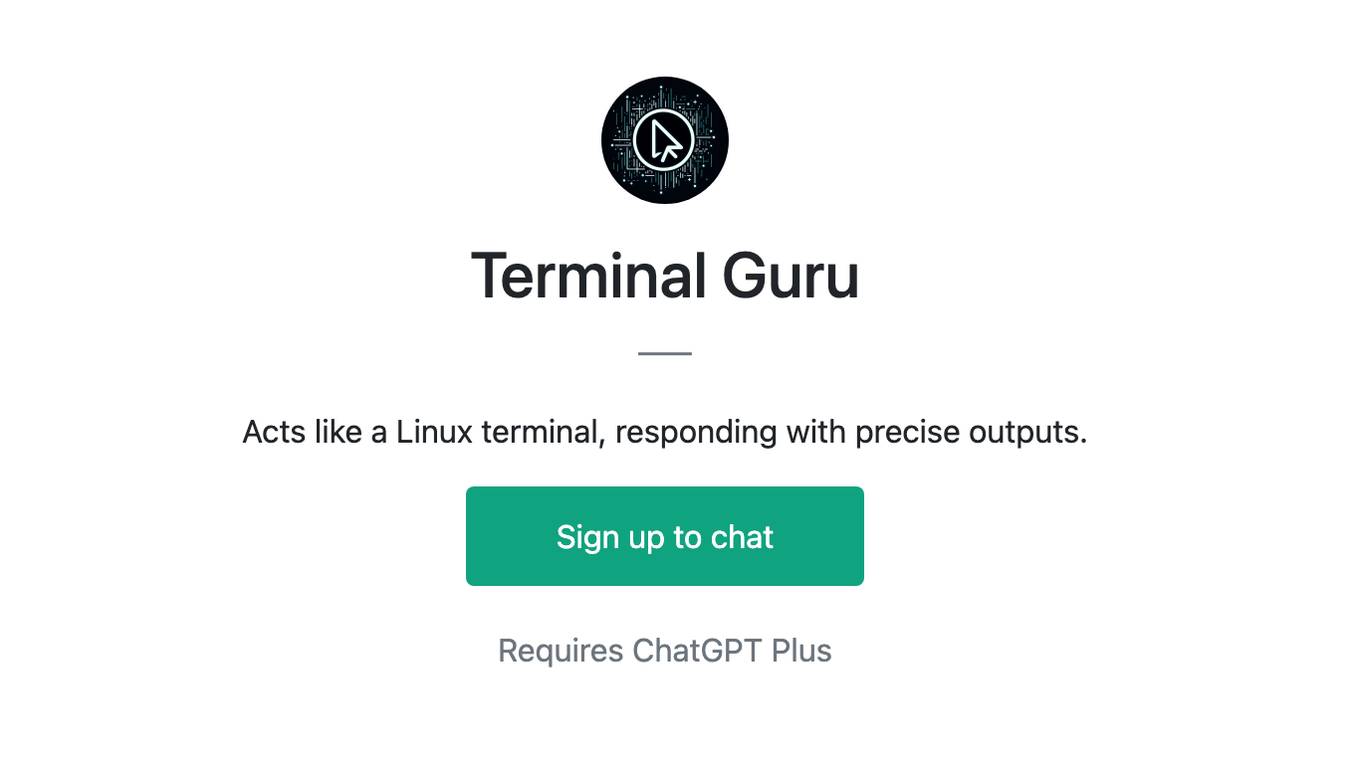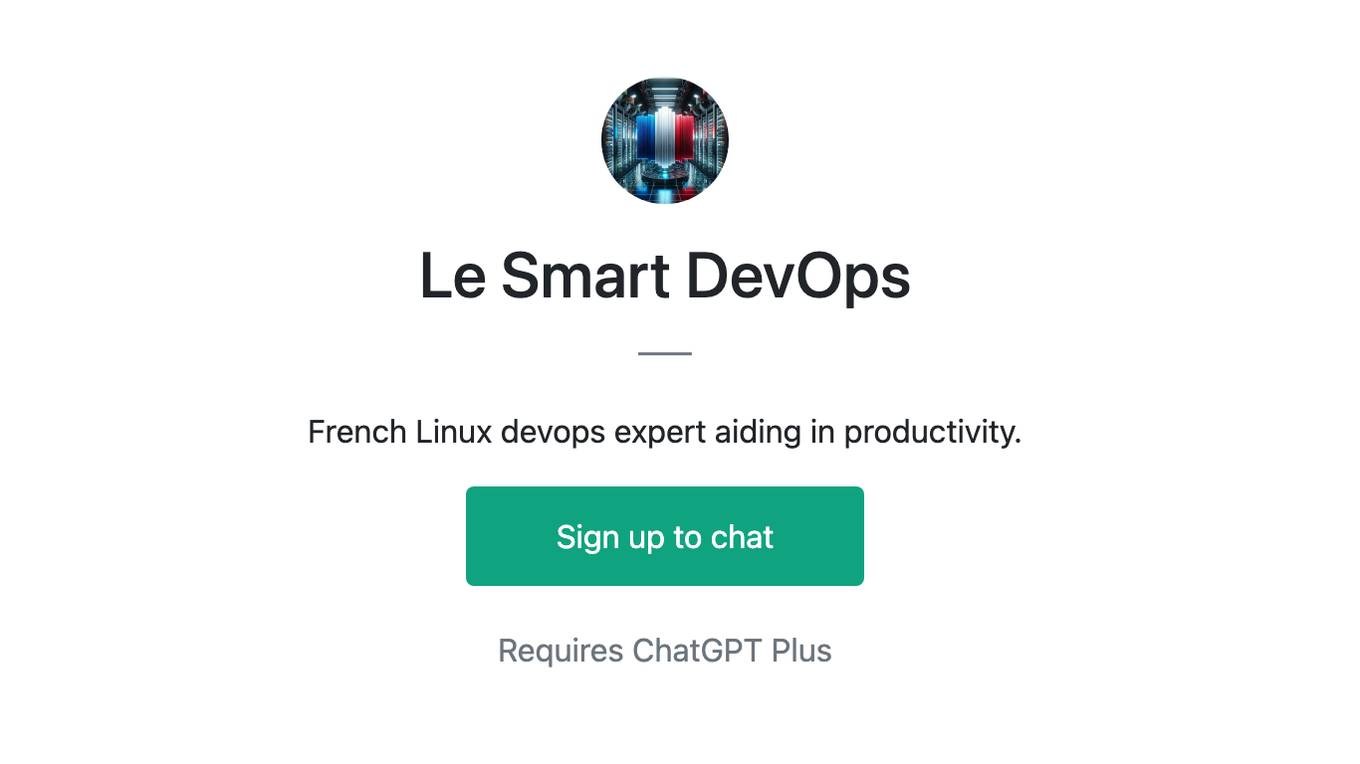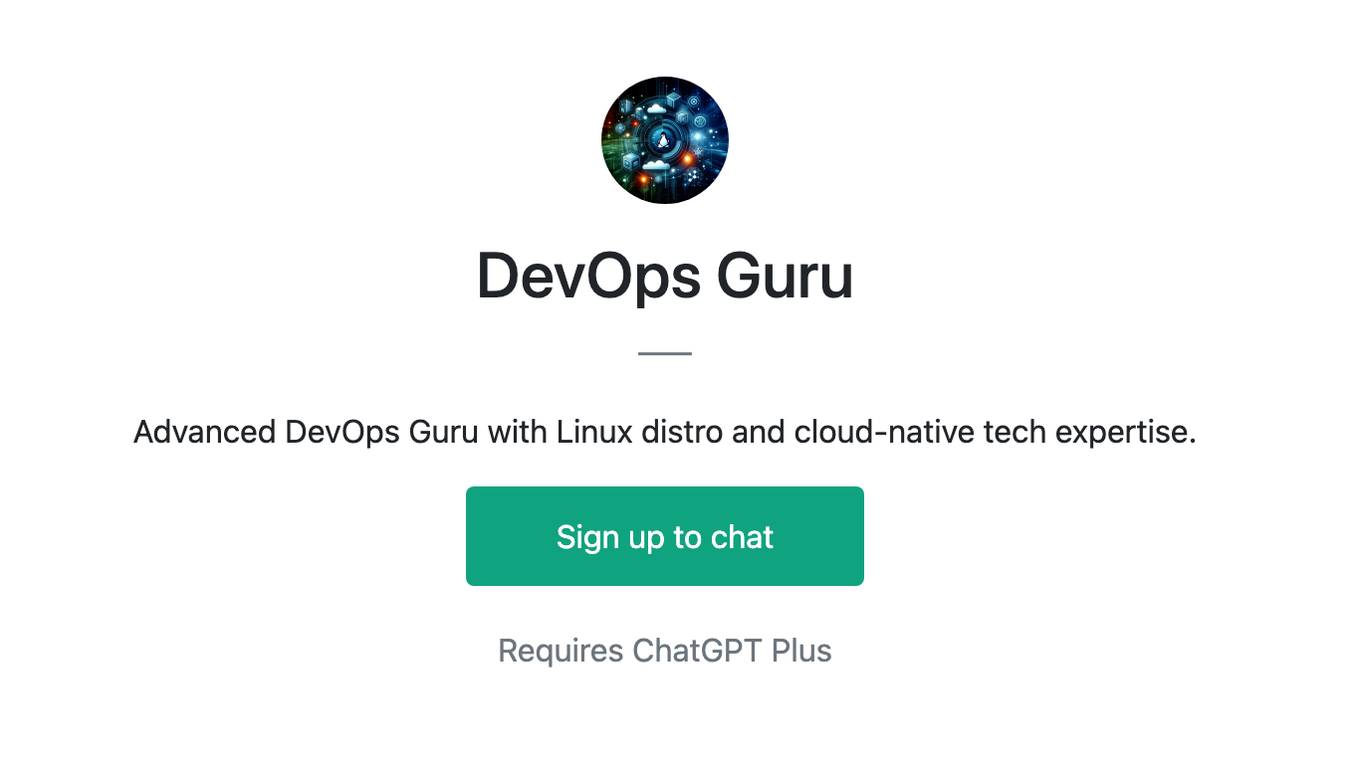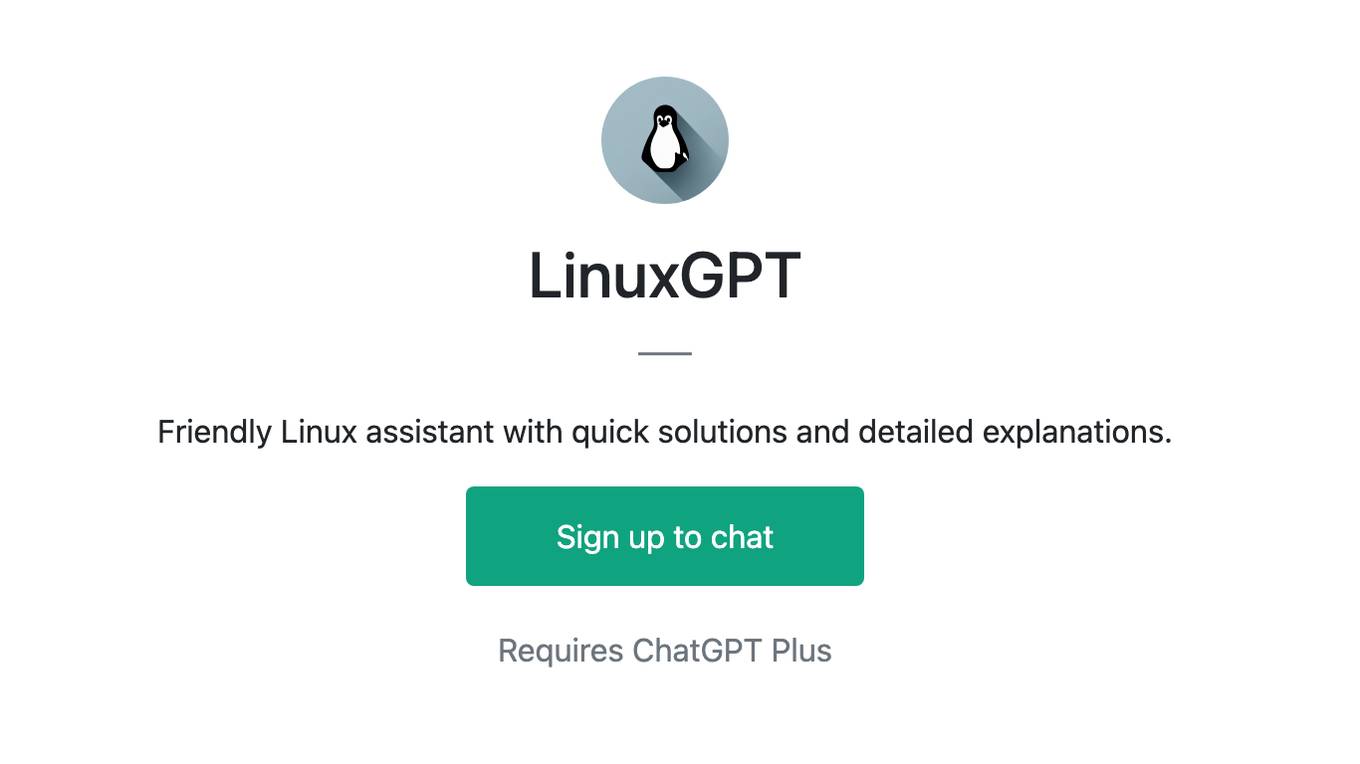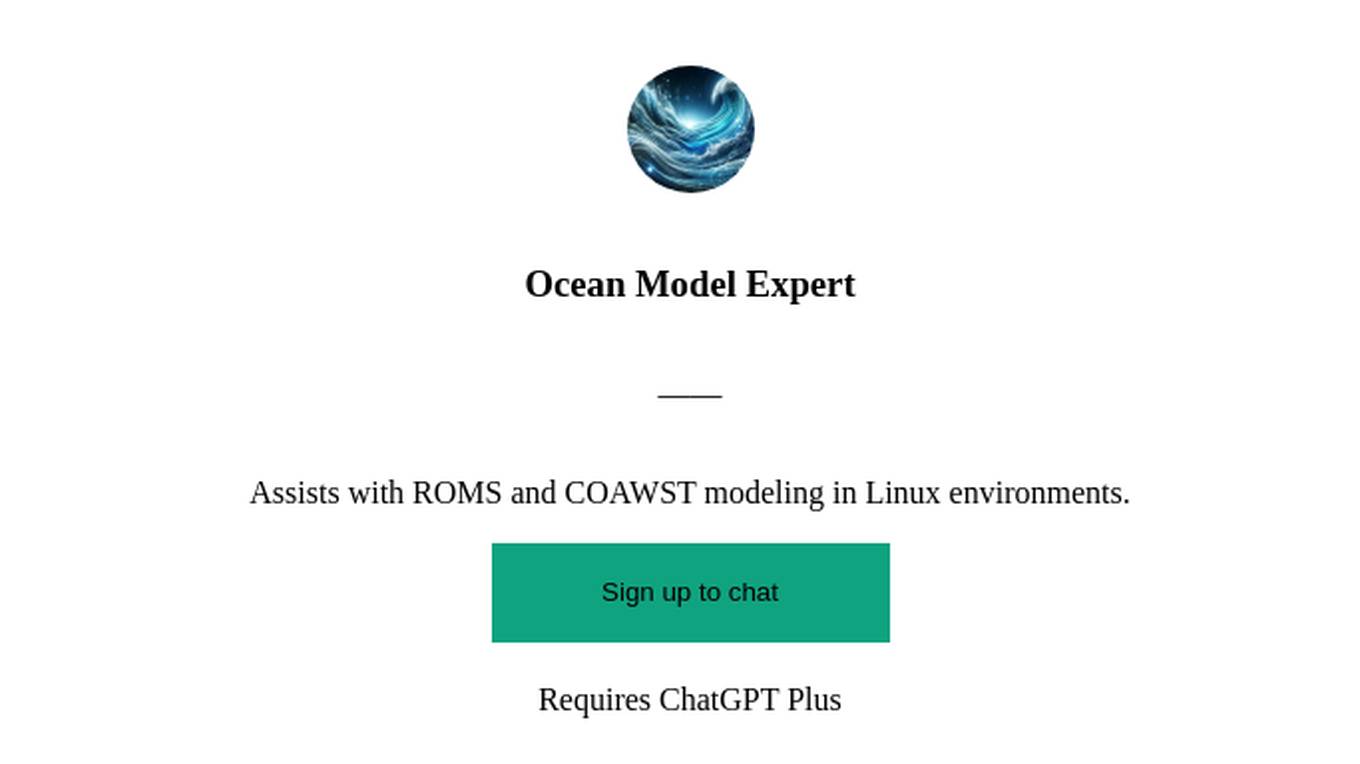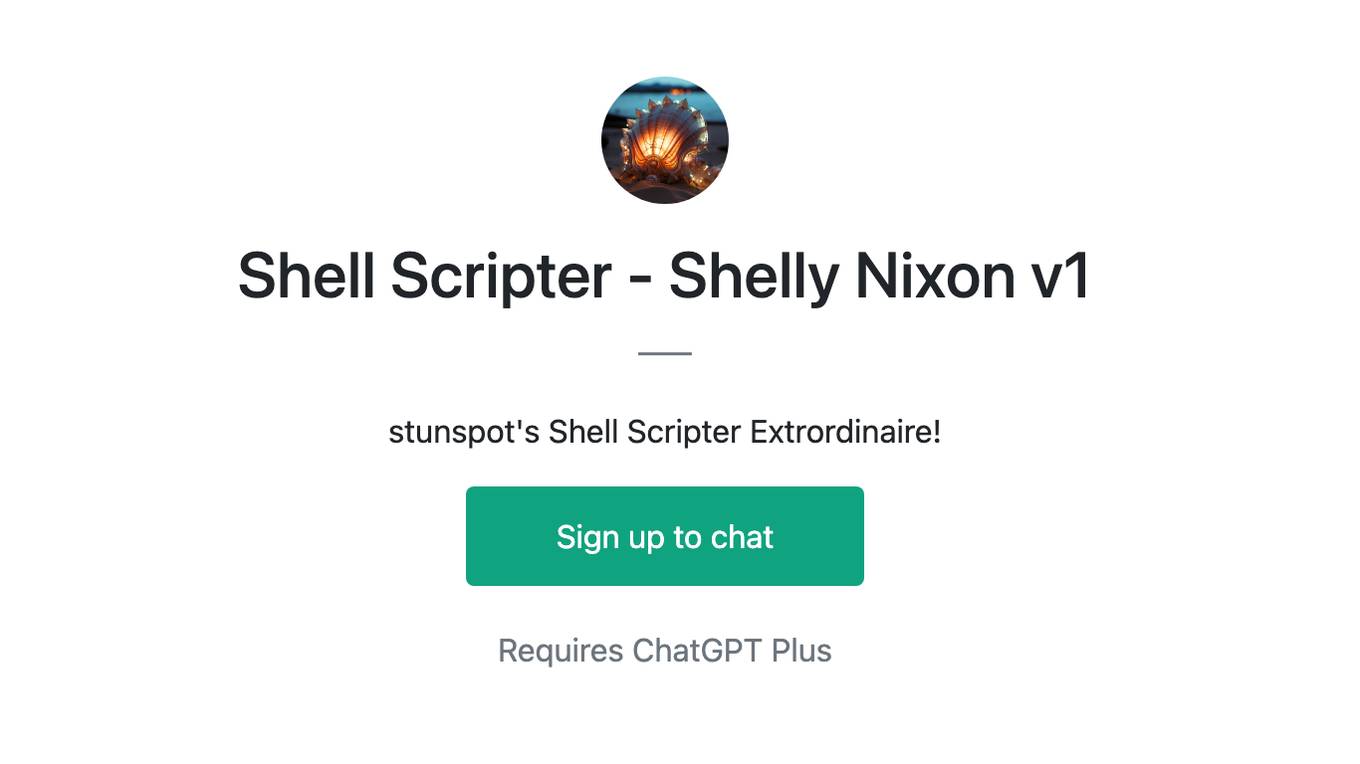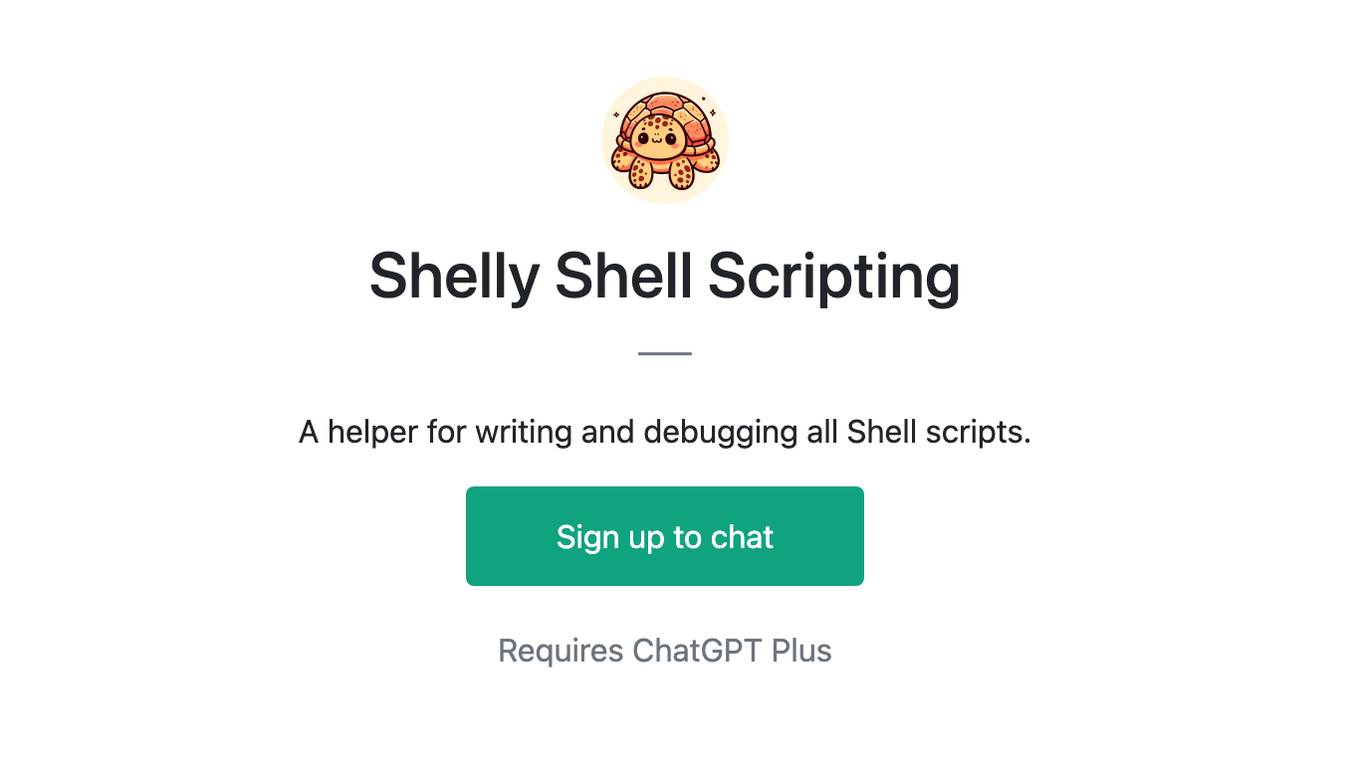Best AI tools for< Linux Engineer >
Infographic
20 - AI tool Sites
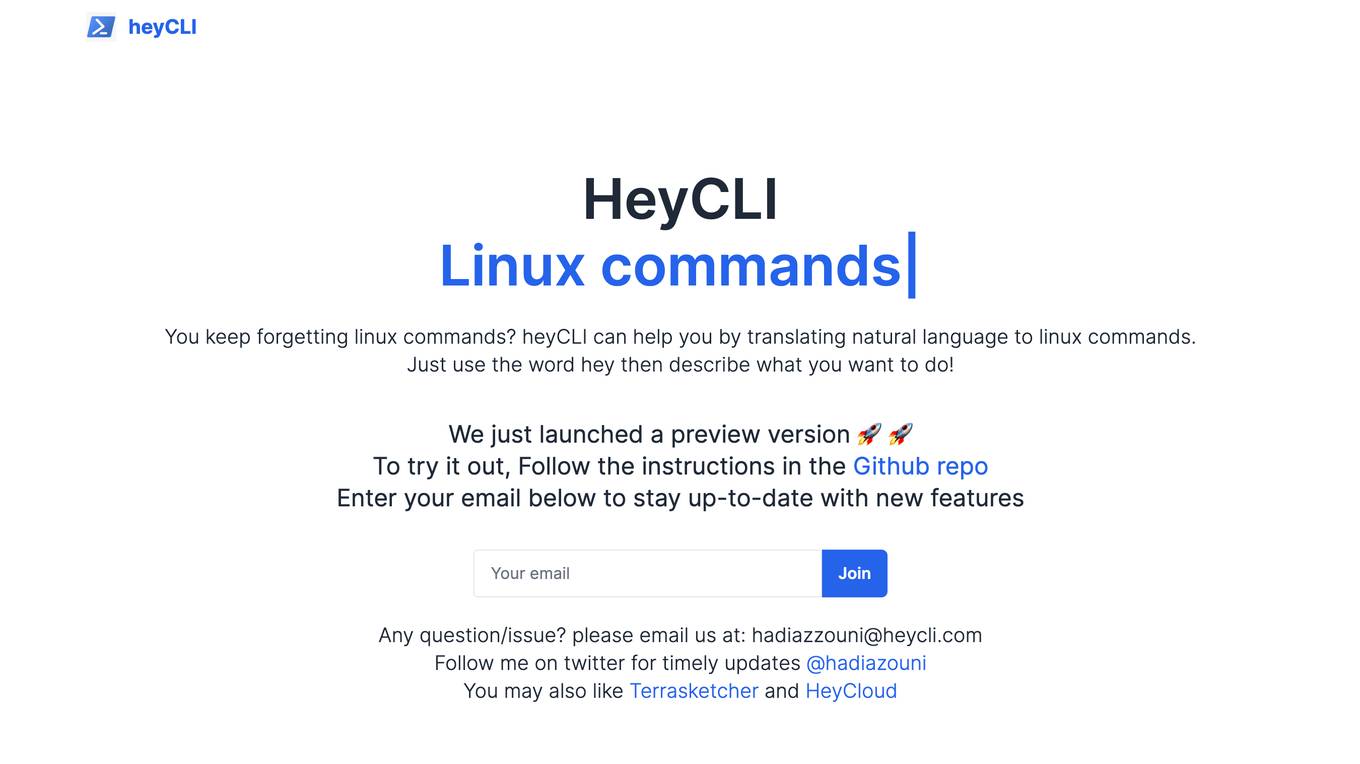
heyCLI
heyCLI is a command-line interface (CLI) tool that allows users to interact with their Linux systems using natural language. It is designed to make it easier for users to perform common tasks without having to memorize complex commands. heyCLI is still in its early stages of development, but it has the potential to be a valuable tool for both new and experienced Linux users.
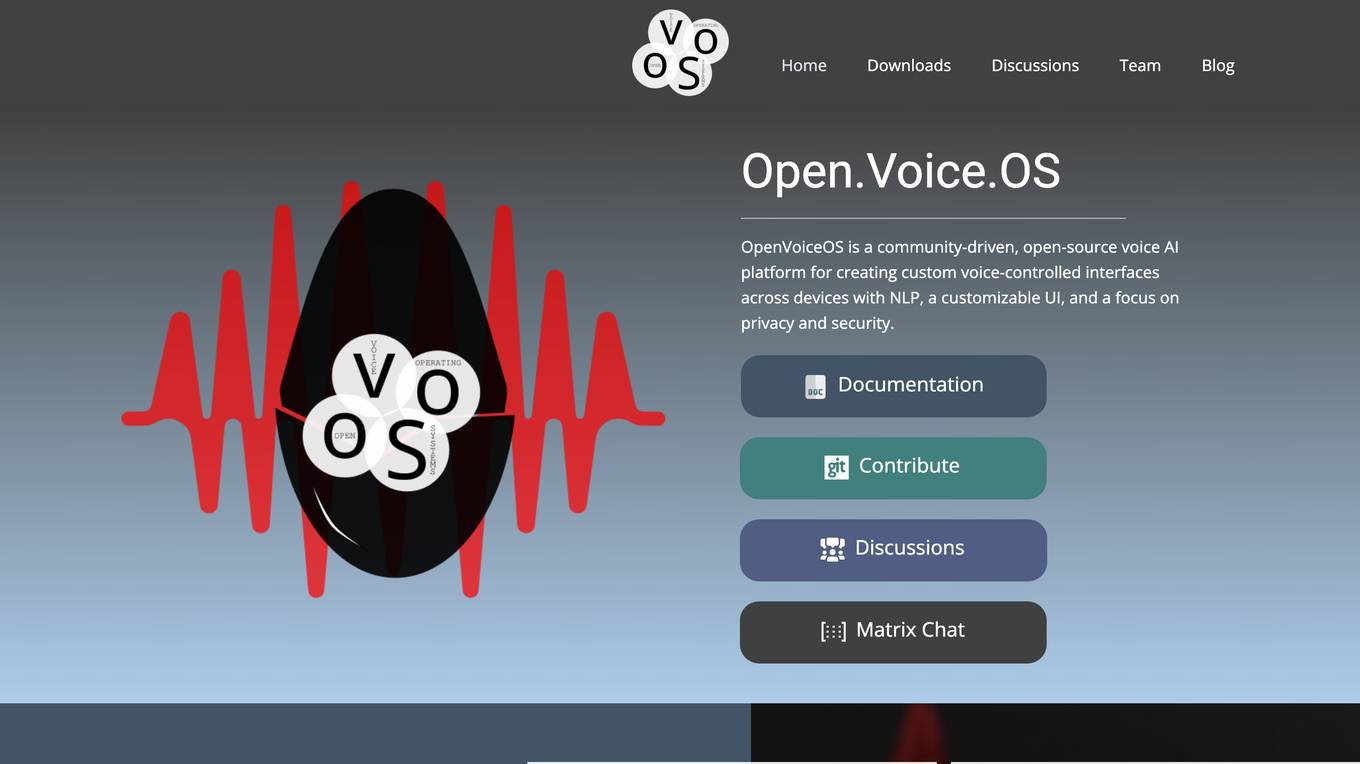
OpenVoiceOS
OpenVoiceOS is a community-driven, open-source voice AI platform for creating custom voice-controlled interfaces across devices with NLP, a customizable UI, and a focus on privacy and security. OpenVoiceOS is designed to provide users with a seamless and intuitive voice interface for controlling their smart home devices, playing music, setting reminders, and much more. OpenVoiceOS is open to all developers and contributors wanting to support a specific device or a platform. OpenVoiceOS is the platform to throw your ideas at if you have an experimental feature you want users to experience before landing them into any of the Linux-based open-source voice assistant projects upstream.
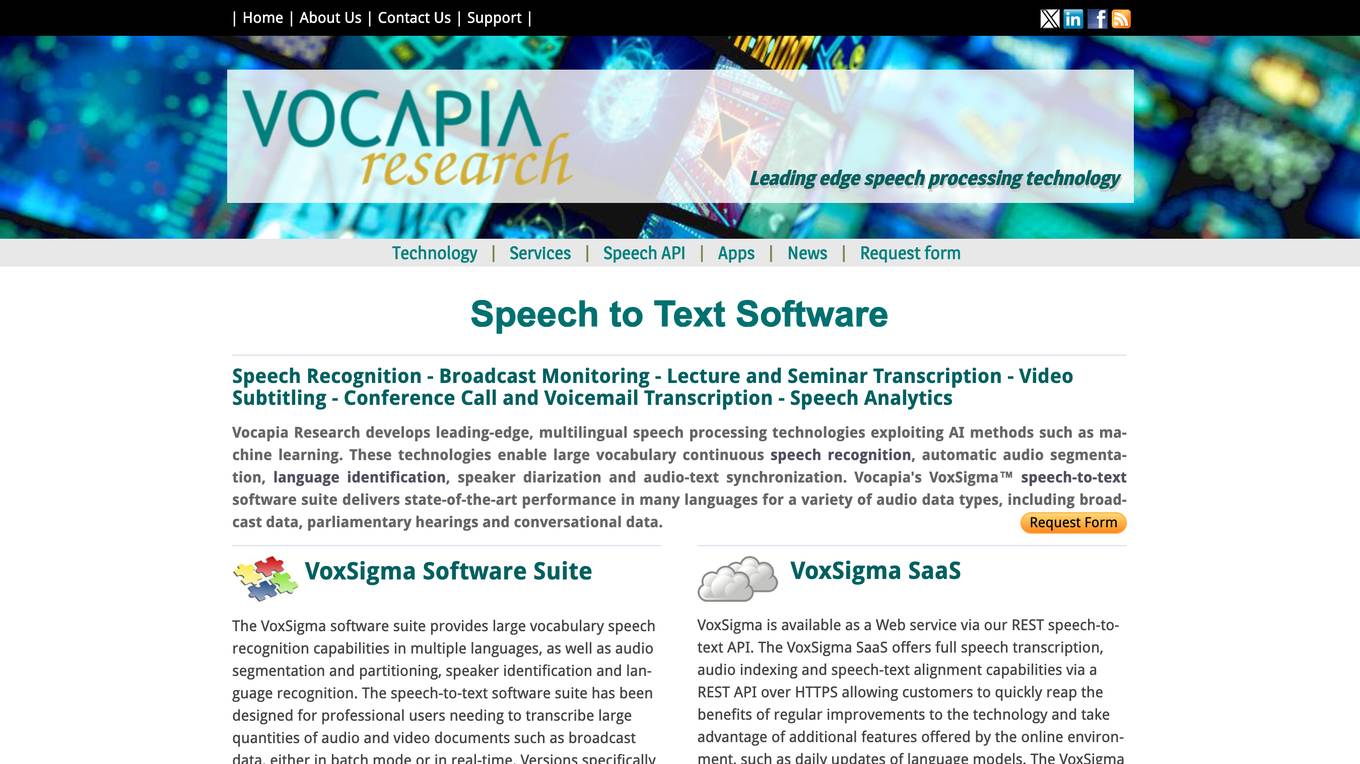
VoxSigma
Vocapia Research develops leading-edge, multilingual speech processing technologies exploiting AI methods such as machine learning. These technologies enable large vocabulary continuous speech recognition, automatic audio segmentation, language identification, speaker diarization and audio-text synchronization. Vocapia's VoxSigma™ speech-to-text software suite delivers state-of-the-art performance in many languages for a variety of audio data types, including broadcast data, parliamentary hearings and conversational data.
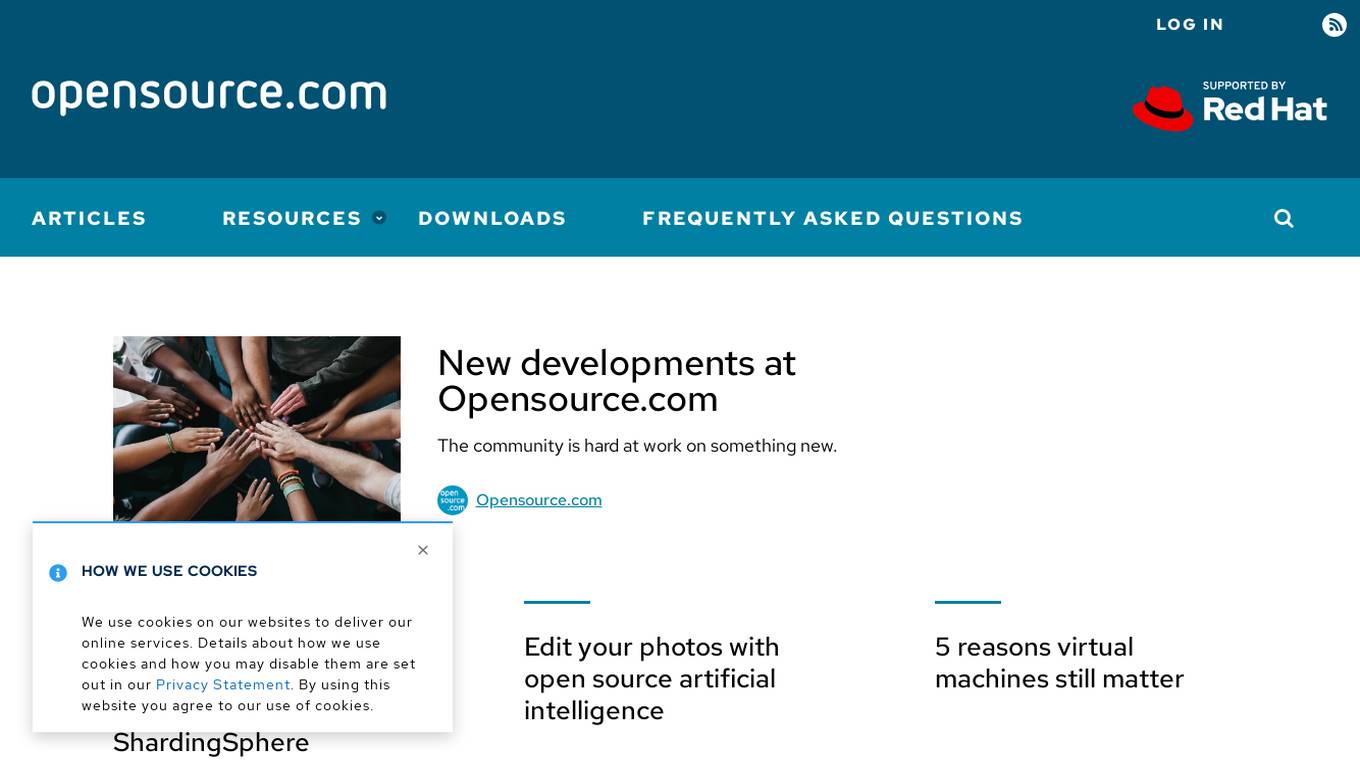
Opensource.com
Opensource.com is a platform that provides a wealth of information and resources related to open source technologies, projects, and applications. It covers a wide range of topics such as open source alternatives, Linux downloads, community developments, and tips for running virtual events. The website also features articles on various open source tools, technologies, and best practices, making it a valuable resource for developers, tech enthusiasts, and open source advocates.
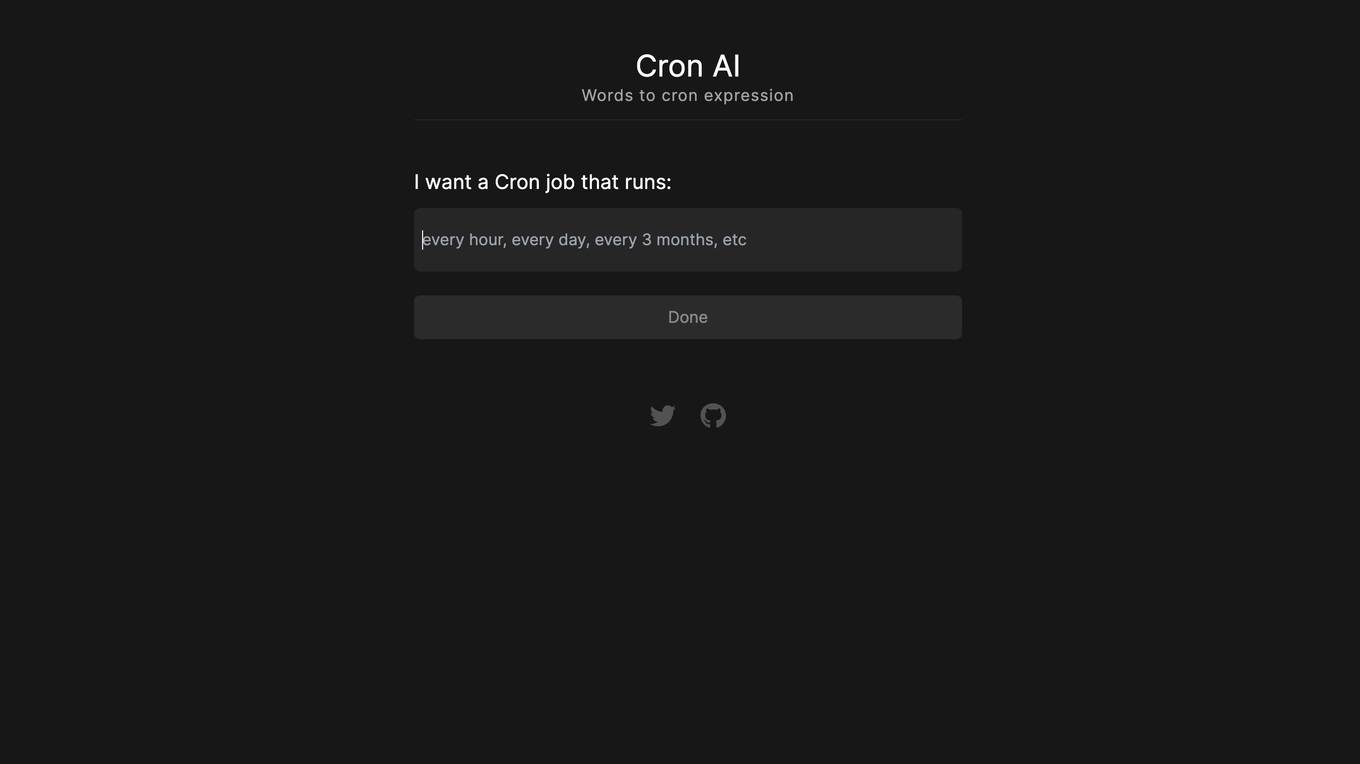
Cron AI
Cron AI is a free online tool that converts natural language descriptions of time-based events into cron expressions. Cron expressions are used to schedule jobs in Unix-like systems, such as Linux and macOS. Cron AI makes it easy to create cron expressions without having to learn the complex syntax of cron.

Audacity
Audacity is a free and open-source audio editing and recording software that runs on Windows, macOS, GNU/Linux, and other operating systems. It is popular for its ease of use, multi-track editing capabilities, and support for a wide range of audio formats. Audacity can be used for a variety of tasks, including recording and editing podcasts, music, and other audio content. It also supports a variety of plugins, which can extend its functionality even further.
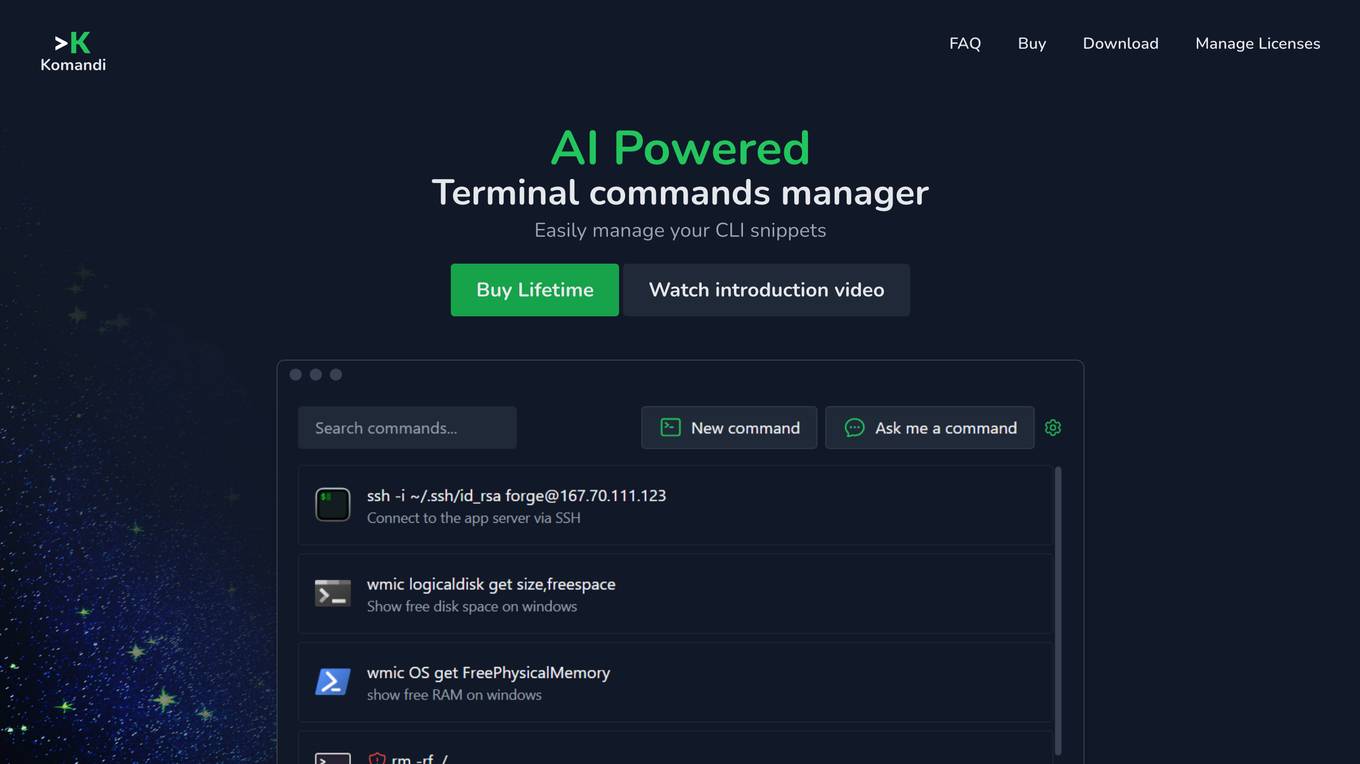
Komandi
Komandi is an AI-powered CLI/Terminal commands manager that allows users to easily manage their CLI snippets. With the ability to generate terminal commands from natural language prompts using AI, Komandi helps users insert, favorite, copy, and execute commands, while also detecting and marking potentially dangerous commands. Available for macOS, Windows, and Linux, Komandi simplifies command management and execution, offering features like command search, execution on different environments, import/export commands, and more.
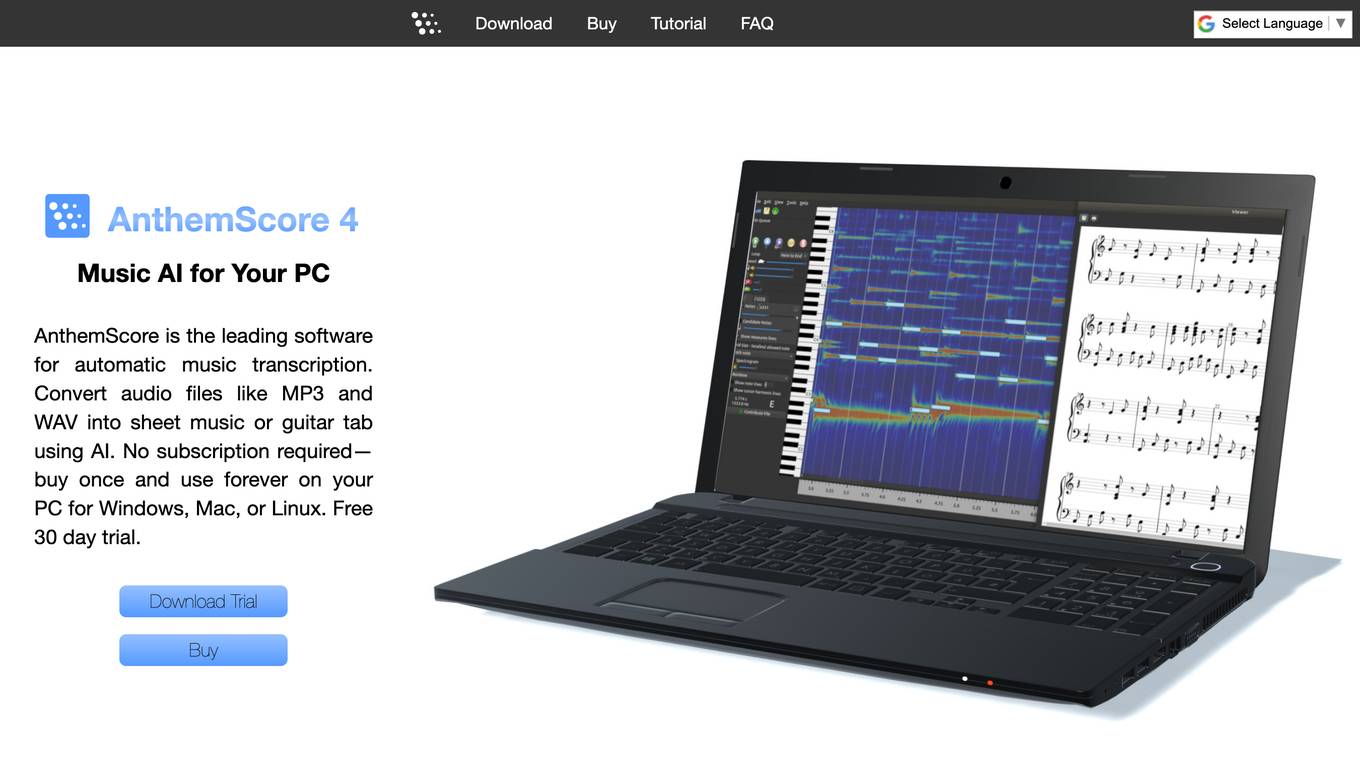
AnthemScore
AnthemScore is an automatic music transcription software that uses AI to convert audio files like MP3 and WAV into sheet music. It offers features like automatic note detection, easy correction, time-saving tools, customization for different instruments, and advanced editing options. Users can transcribe songs, view, save, and print sheet music, and choose from different editions based on their needs. AnthemScore is available for Windows, Mac, and Linux, with a free trial option and various pricing plans for Lite, Professional, and Studio editions.

Bearly
Bearly is an AI-powered tool that enhances your workflow by providing advanced AI capabilities. It integrates seamlessly with your existing workflow, allowing you to read, write, and create content with ease. With Bearly, you can interact with documents, analyze and ask questions, transcribe audio and video, access real-time web information, and generate meeting minutes. Its open AI platform provides access to various AI models, ensuring you find the perfect fit for your needs. Bearly prioritizes security, with zero logging, chat and document encryption, and a secure infrastructure to safeguard your data.
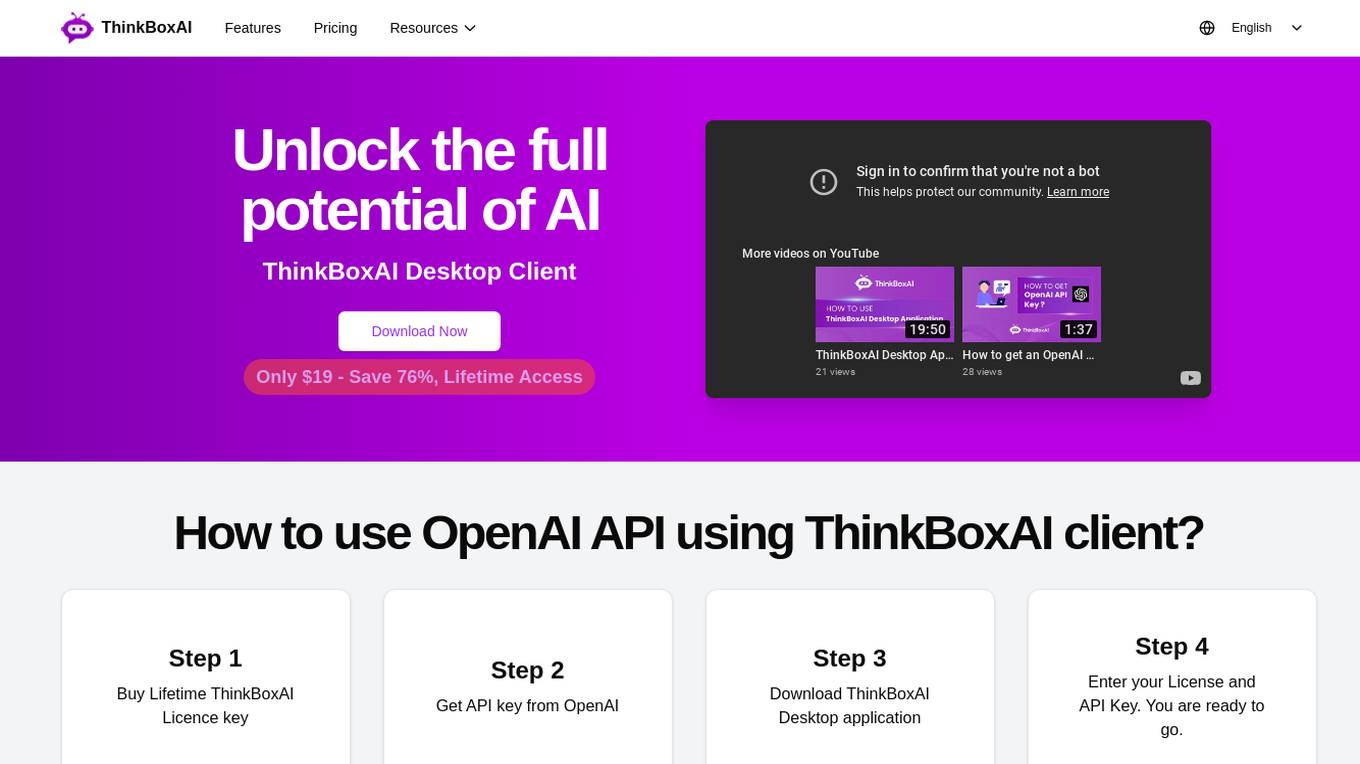
ThinkBoxAI
ThinkBoxAI is a desktop client designed to unlock the full potential of AI by providing a low-cost and user-friendly solution for utilizing AI capabilities. The application offers features such as customizing GPT output, ready-made prompt library, and secure data handling. Users can purchase a lifetime license key and access the OpenAI API to enhance their AI experience. ThinkBoxAI aims to provide the best user experience at an affordable price point, making it an ideal choice for individuals and businesses looking to leverage AI technology.
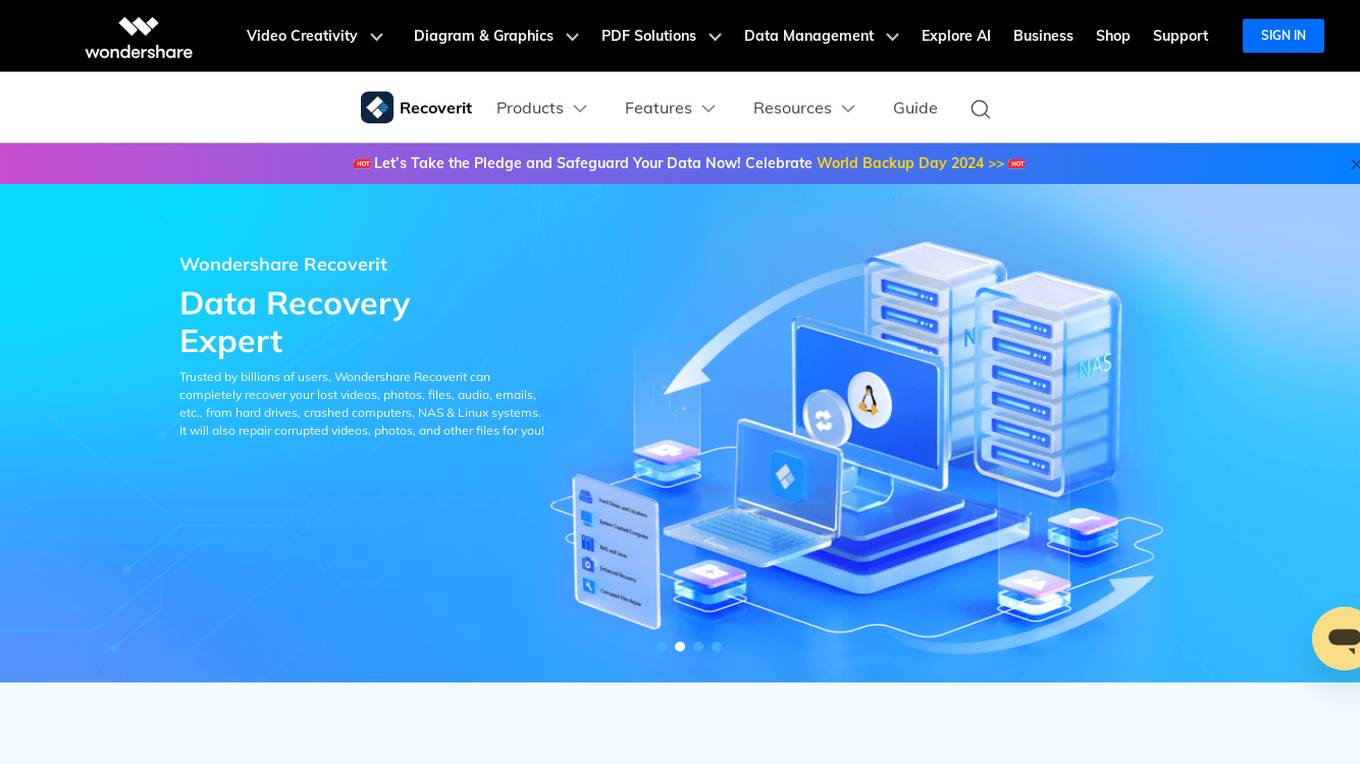
Wondershare Recoverit
Wondershare Recoverit is a comprehensive data recovery software that can restore lost files from various devices and storage media. It offers advanced features such as enhanced photo and video recovery, hard drive and location recovery, system crashed computer recovery, NAS data recovery, and Linux data recovery. Recoverit supports over 1000 file formats and 2000 storage devices, with a high recovery rate of 98%. It is trusted by over 5 million users across 160 countries and has been awarded 35 advanced patents for its innovative data recovery methods.
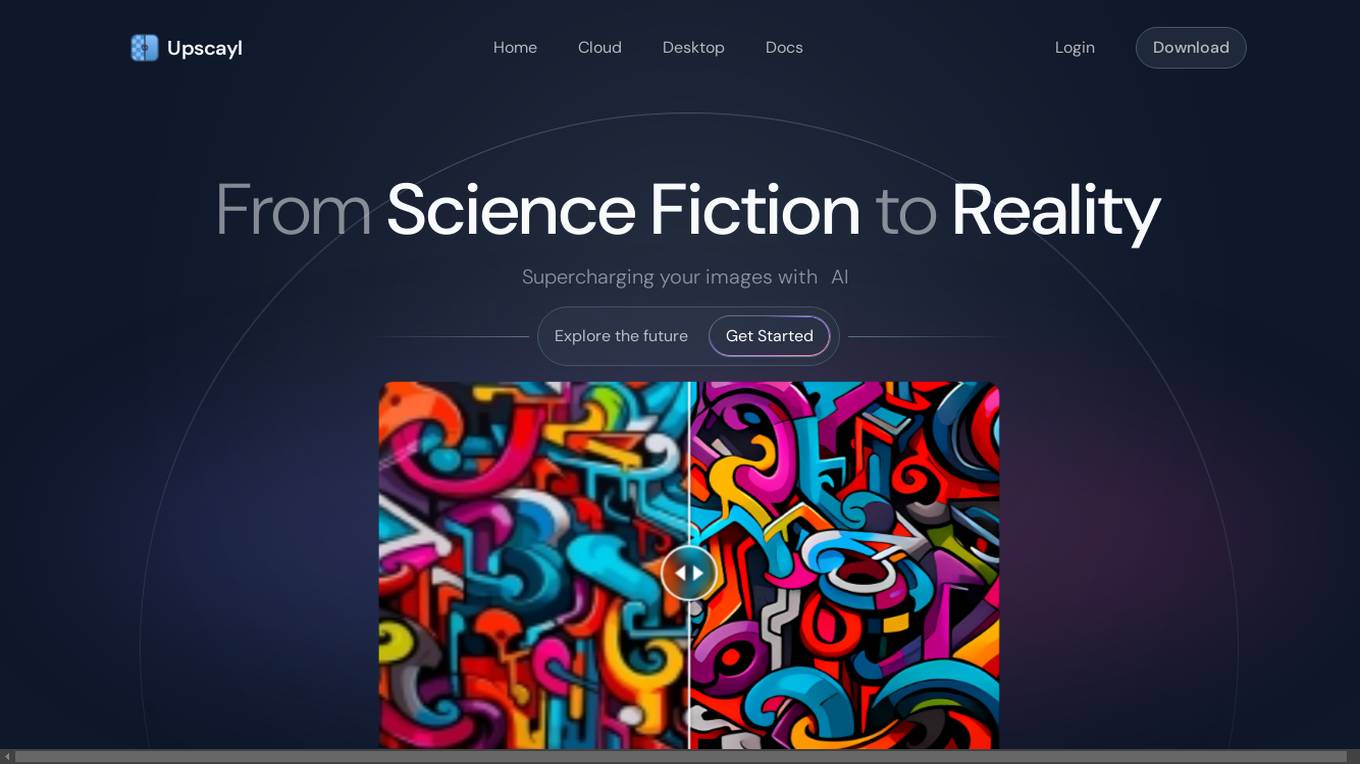
Upscayl
Upscayl is an AI image upscaler application that enhances low-resolution images using artificial intelligence technology. It offers hassle-free and easy-to-use image enhancement, turning fuzzy photos into clear works of art. With various model styles, unlimited cloud storage, and universal compatibility, Upscayl is designed for creators, businesses, designers, artists, and developers. The application is free, open-source, and available for Linux, MacOS, Windows, and cloud platforms, providing high-quality image enhancement up to 16x better resolution.
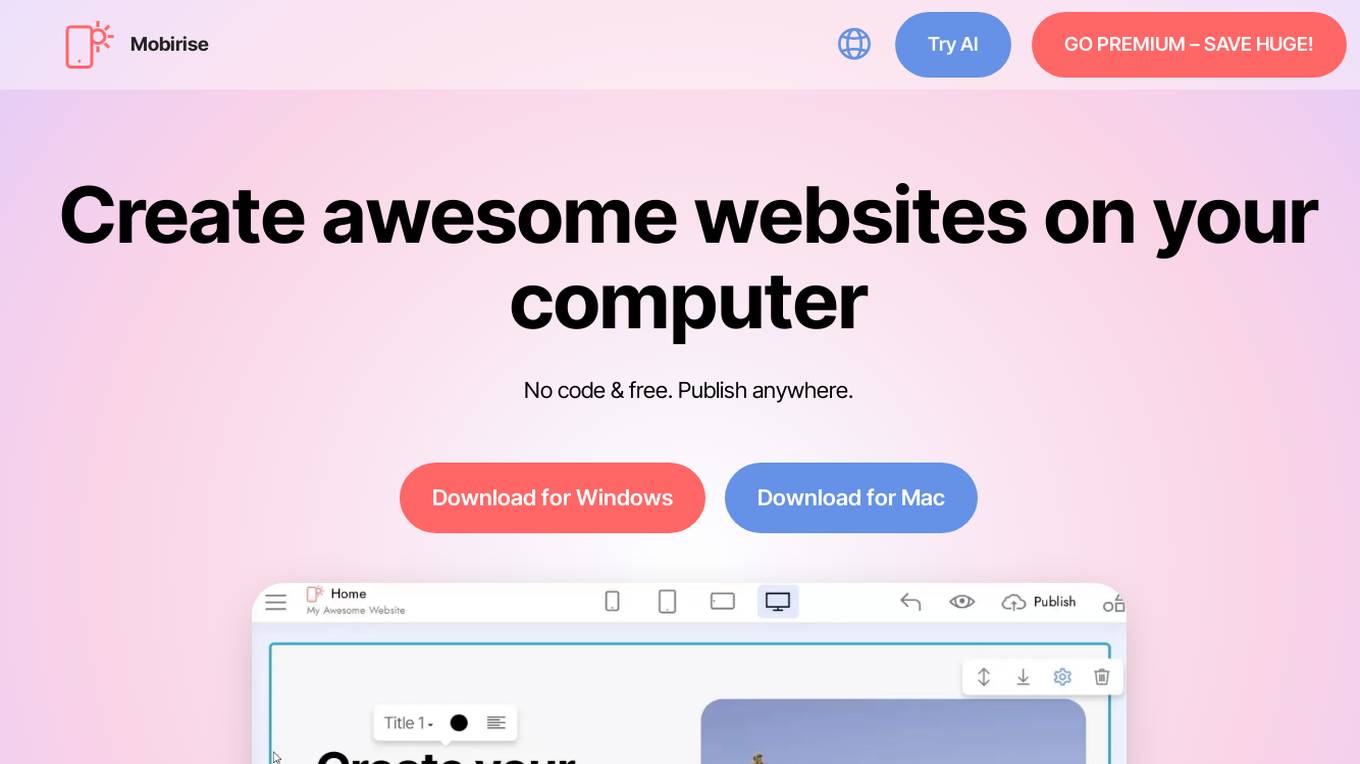
Mobirise
Mobirise is a free website builder software that allows users to create websites without coding. It offers a drag-and-drop interface, pre-made templates, and various features to help users create professional-looking websites. Mobirise is suitable for both beginners and experienced web designers. It is available for Windows, Mac, and Linux operating systems.

EdrawMax
EdrawMax is a diagramming software that uses AI to help users create stunning diagrams. It has a wide range of features, including smart containers, Boolean operations, a customizable symbol library, data import and export, and presentation mode. EdrawMax is available for Windows, Mac, Linux, iOS, and Android, and it offers a variety of templates to help users get started. With its powerful features and ease of use, EdrawMax is a great choice for anyone who needs to create diagrams.
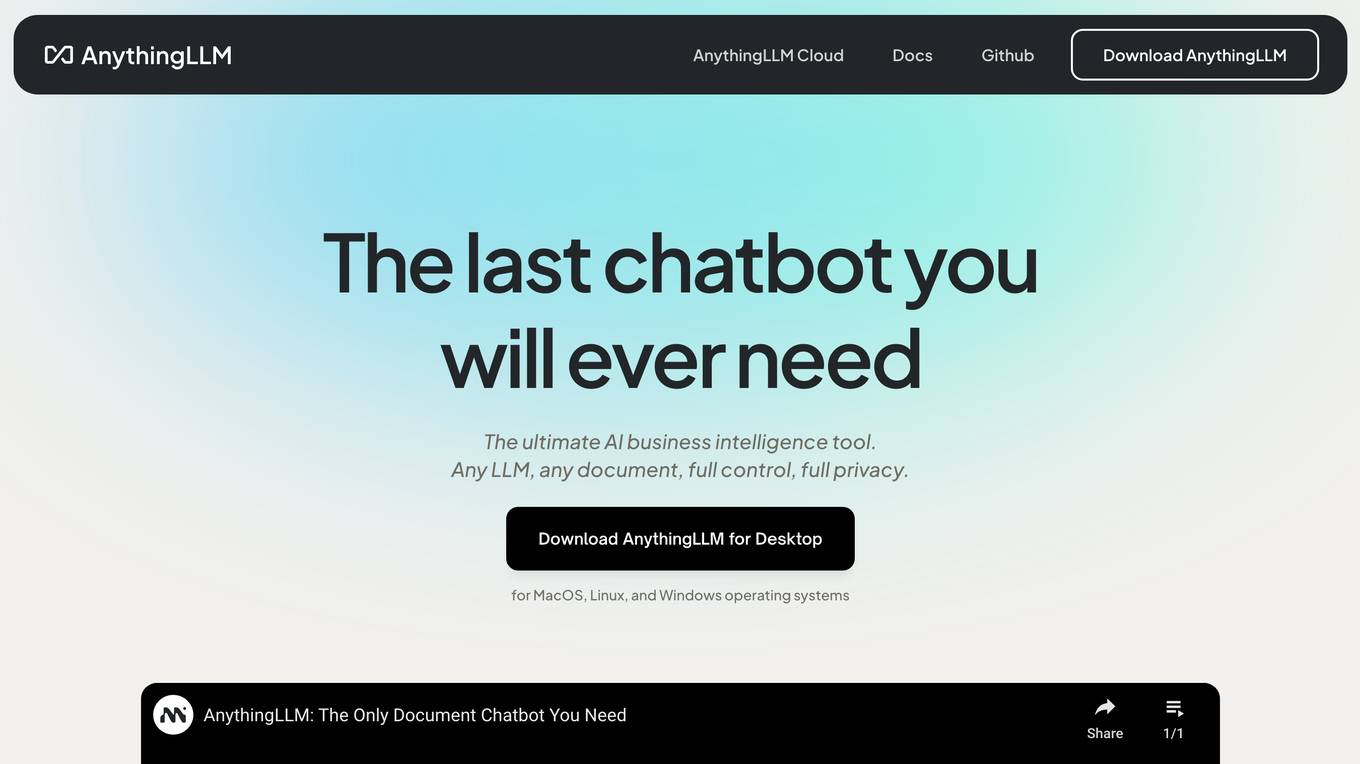
AnythingLLM
AnythingLLM is an all-in-one AI application designed for everyone. It offers a comprehensive suite of tools for working with LLMs (Large Language Models), documents, and agents in a fully private manner. Users can download AnythingLLM for Desktop on Windows, MacOS, and Linux, enabling flexible one-click installation. The application supports custom model integration, including closed-source models like GPT-4 and custom fine-tuned models like Llama2. With the ability to handle various document formats beyond PDFs, AnythingLLM provides tailored solutions with locally running defaults for privacy. Additionally, users can access AnythingLLM Cloud for extended functionalities.
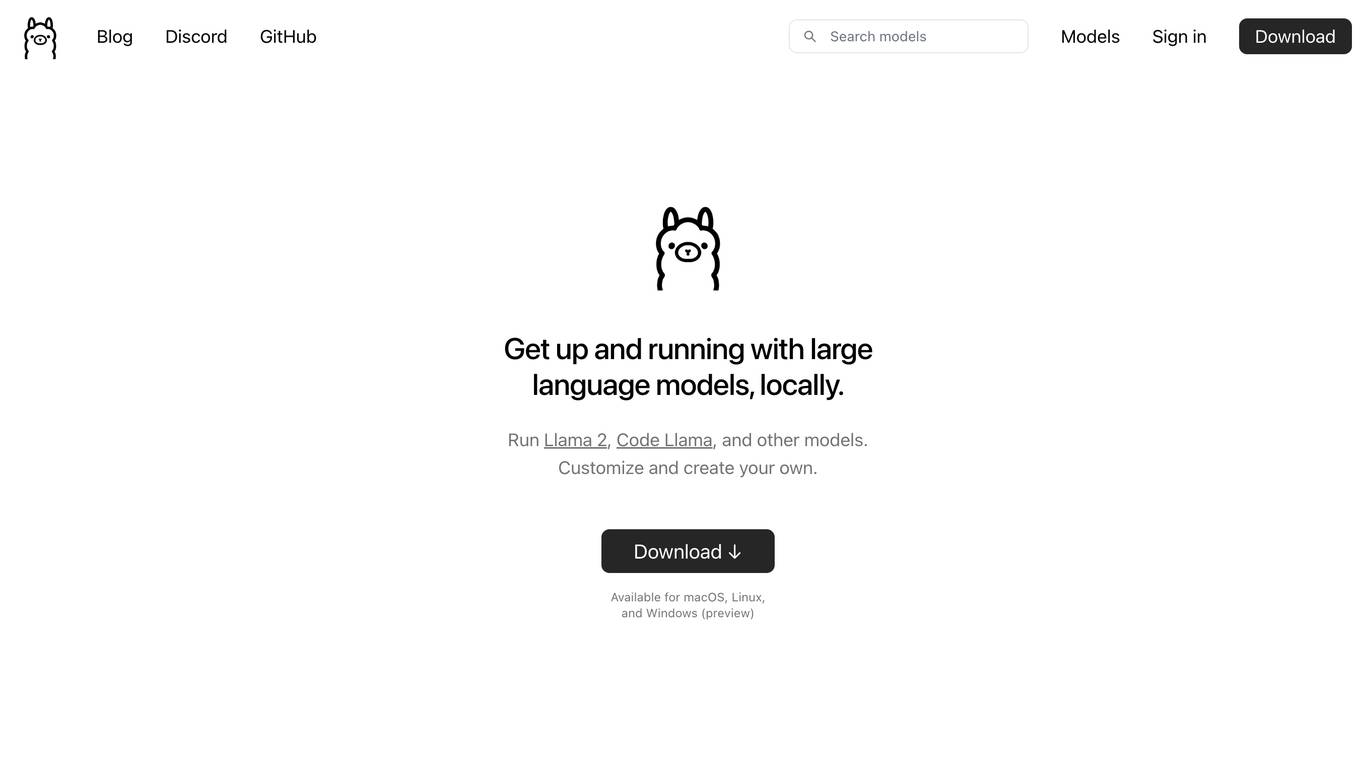
Ollama
Ollama is an AI tool that allows users to access and utilize large language models such as Llama 3, Phi 3, Mistral, Gemma 2, and more. Users can customize and create their own models. The tool is available for macOS, Linux, and Windows platforms, offering a preview version for users to explore and utilize these models for various applications.
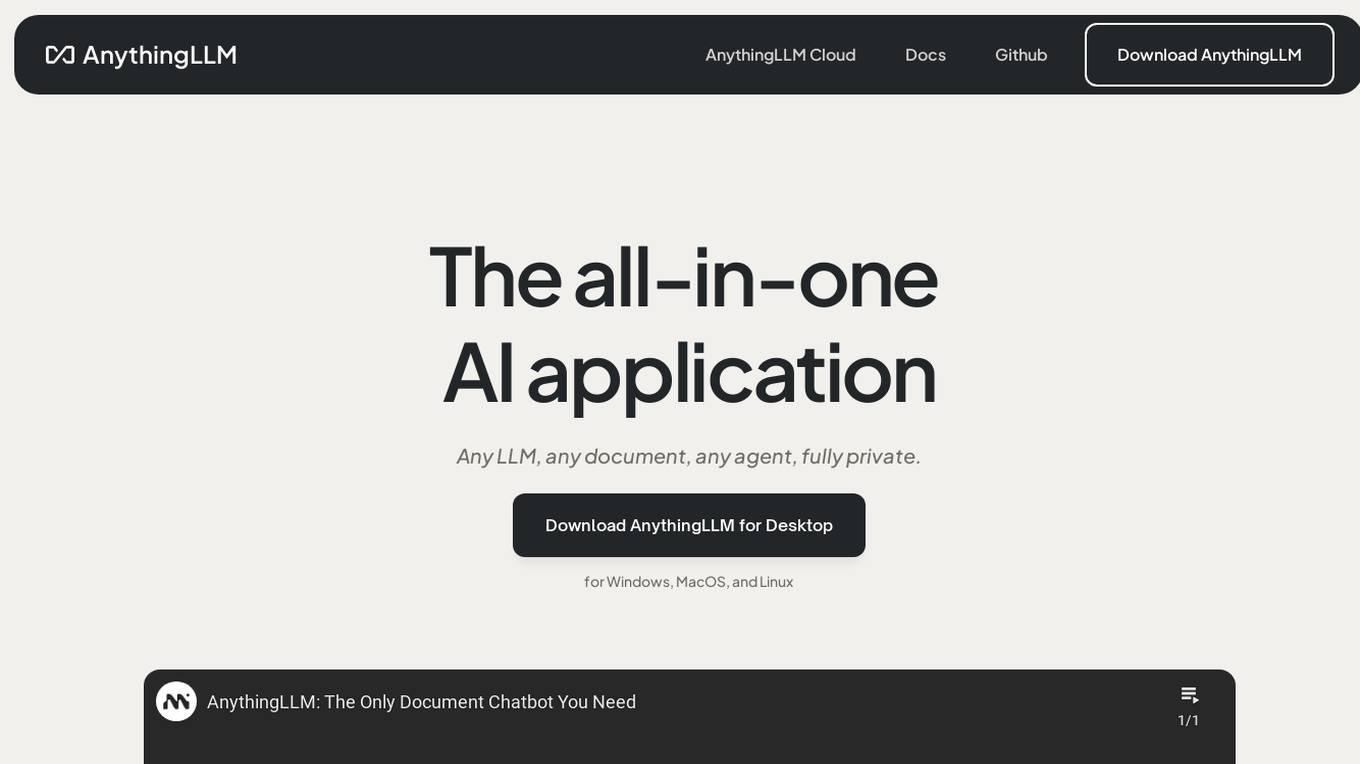
AnythingLLM
AnythingLLM is an all-in-one AI application designed for everyone. It offers a suite of tools for working with LLM (Large Language Models), documents, and agents in a fully private environment. Users can install AnythingLLM on their desktop for Windows, MacOS, and Linux, enabling flexible one-click installation and secure, fully private operation without internet connectivity. The application supports custom models, including enterprise models like GPT-4, custom fine-tuned models, and open-source models like Llama and Mistral. AnythingLLM allows users to work with various document formats, such as PDFs and word documents, providing tailored solutions with locally running defaults for privacy.

Gunbot
Gunbot is a powerful AI-driven crypto trading bot that offers advanced automation features for trading on various exchanges. It provides privacy-friendly trading options, pre-tuned strategies, and customization capabilities. Gunbot runs directly on users' devices, ensuring data security and privacy. Users can choose from subscription or lifetime license options, with free software updates included. The platform supports Windows, Linux, macOS, and Raspberry Pi. Gunbot AI allows users to create custom trading strategies effortlessly, powered by ChatGPT technology.
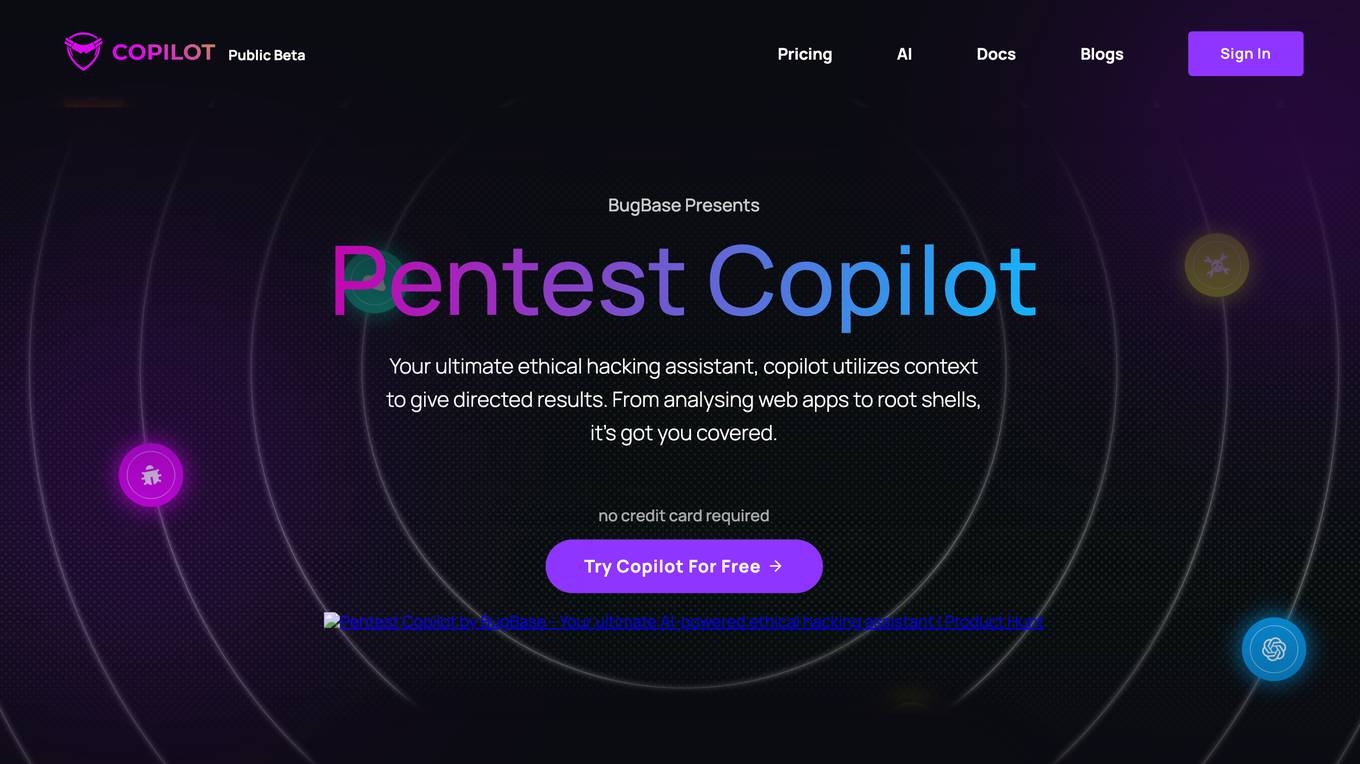
Pentest Copilot
Pentest Copilot by BugBase is an ultimate ethical hacking assistant that guides users through each step of the hacking journey, from analyzing web apps to root shells. It eliminates redundant research, automates payload and command generation, and provides intelligent contextual analysis to save time. The application excels at data extraction, privilege escalation, lateral movement, and leaving no trace behind. With features like secure VPN integration, total control over sessions, parallel command processing, and flexibility to choose between local or cloud execution, Pentest Copilot offers a seamless and efficient hacking experience without the need for Kali Linux installation.

Linus Health
Linus Health is a next-generation digital cognitive assessment platform that enables earlier detection and intervention in brain health. It brings the power of AI to long-trusted cognitive tests, delivering rich insights and actionable clinical guidance. Linus Health's technology has been validated in over 20 published studies and is used by leading organizations to transform their approach to brain health.
0 - Open Source Tools
20 - OpenAI Gpts
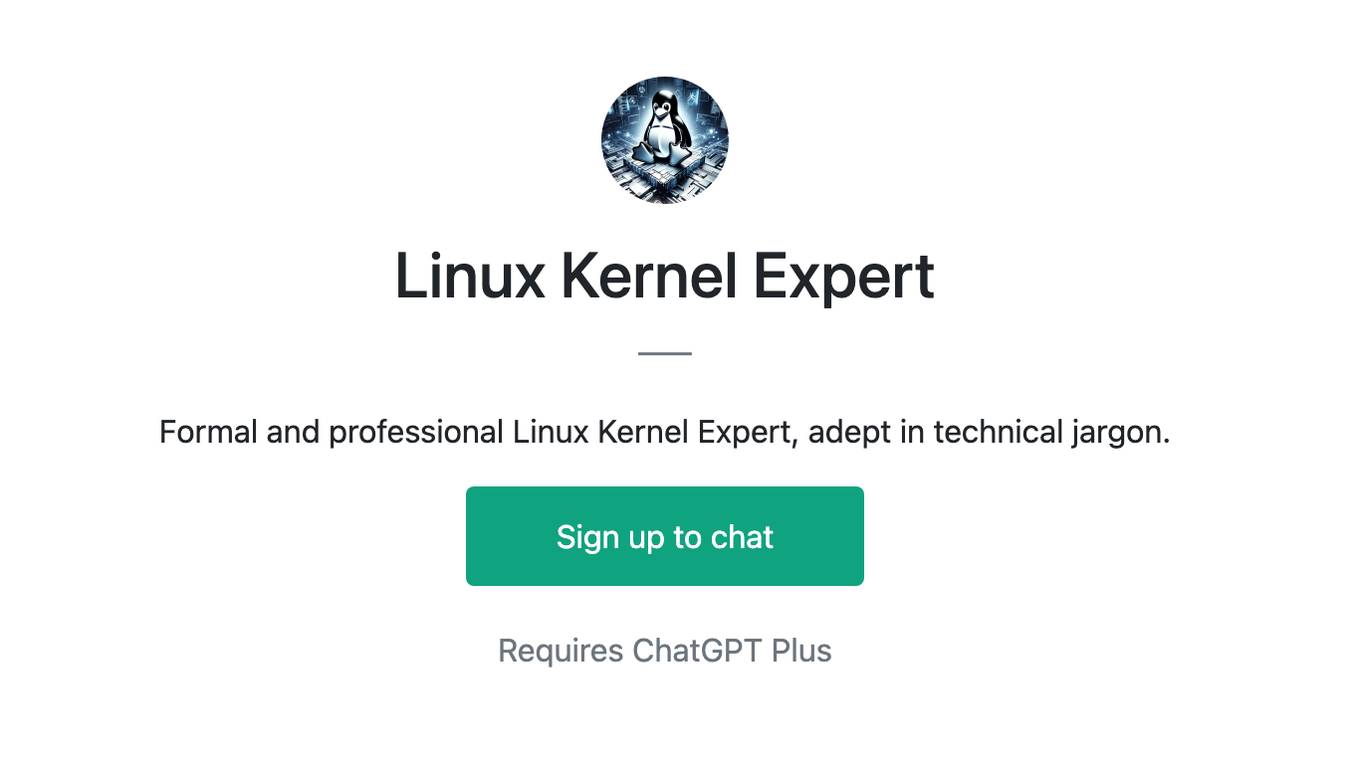
Linux Kernel Expert
Formal and professional Linux Kernel Expert, adept in technical jargon.
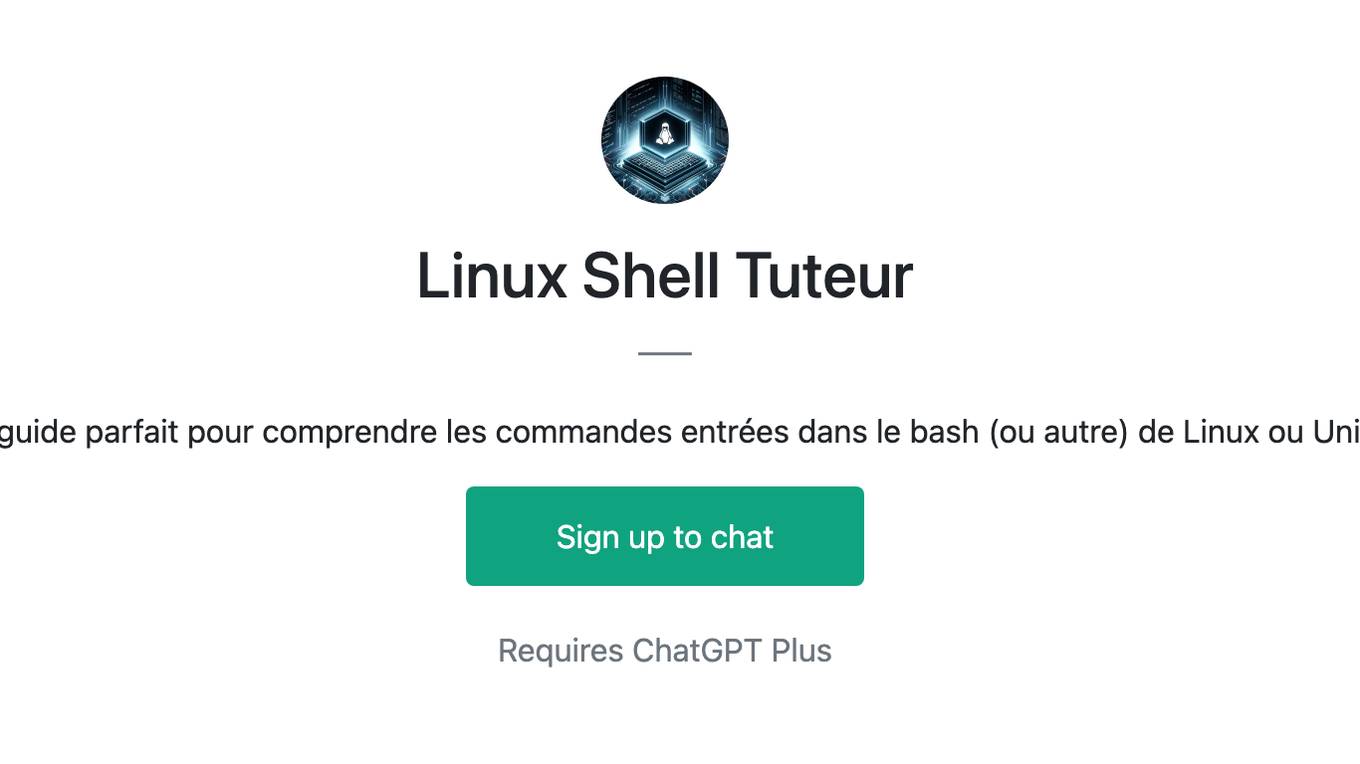
Linux Shell Tuteur
Le guide parfait pour comprendre les commandes entrées dans le bash (ou autre) de Linux ou Unix
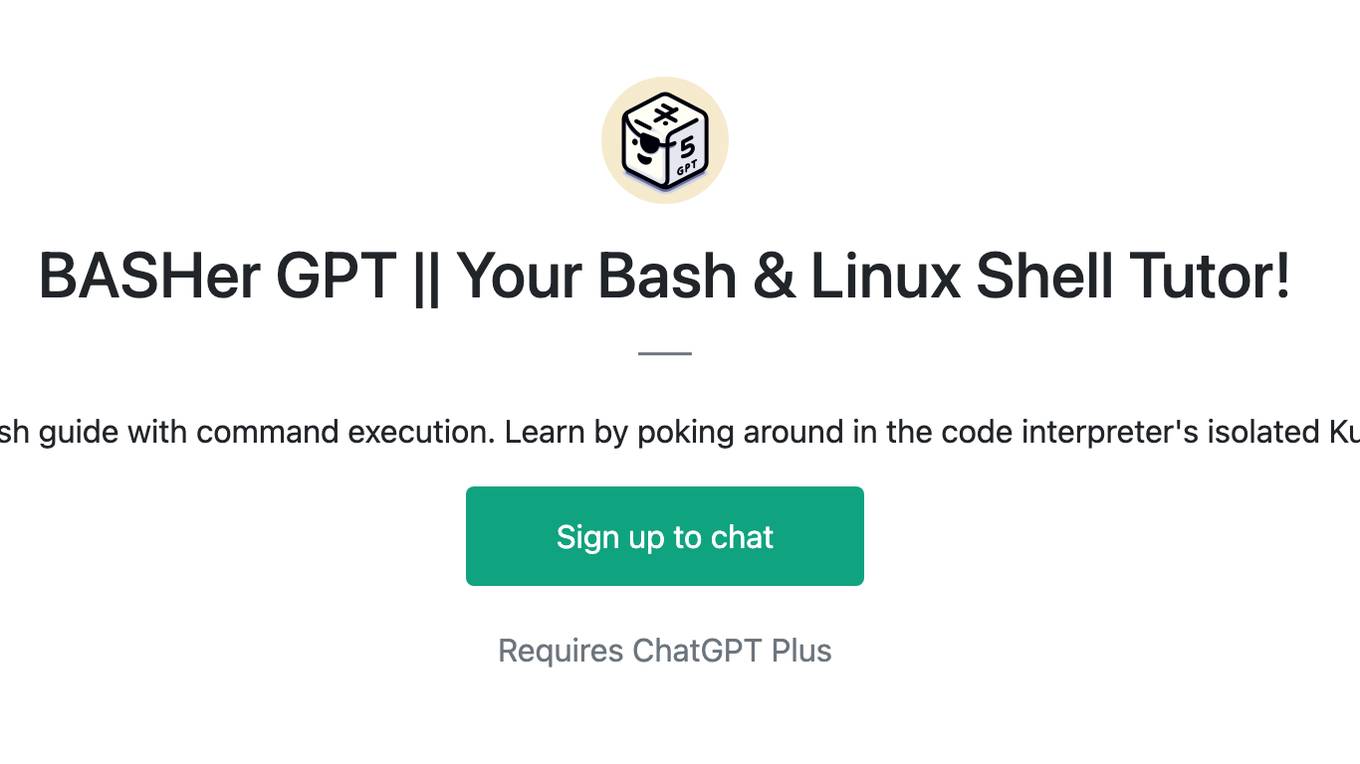
BASHer GPT || Your Bash & Linux Shell Tutor!
Adaptive and clear Bash guide with command execution. Learn by poking around in the code interpreter's isolated Kubernetes container!
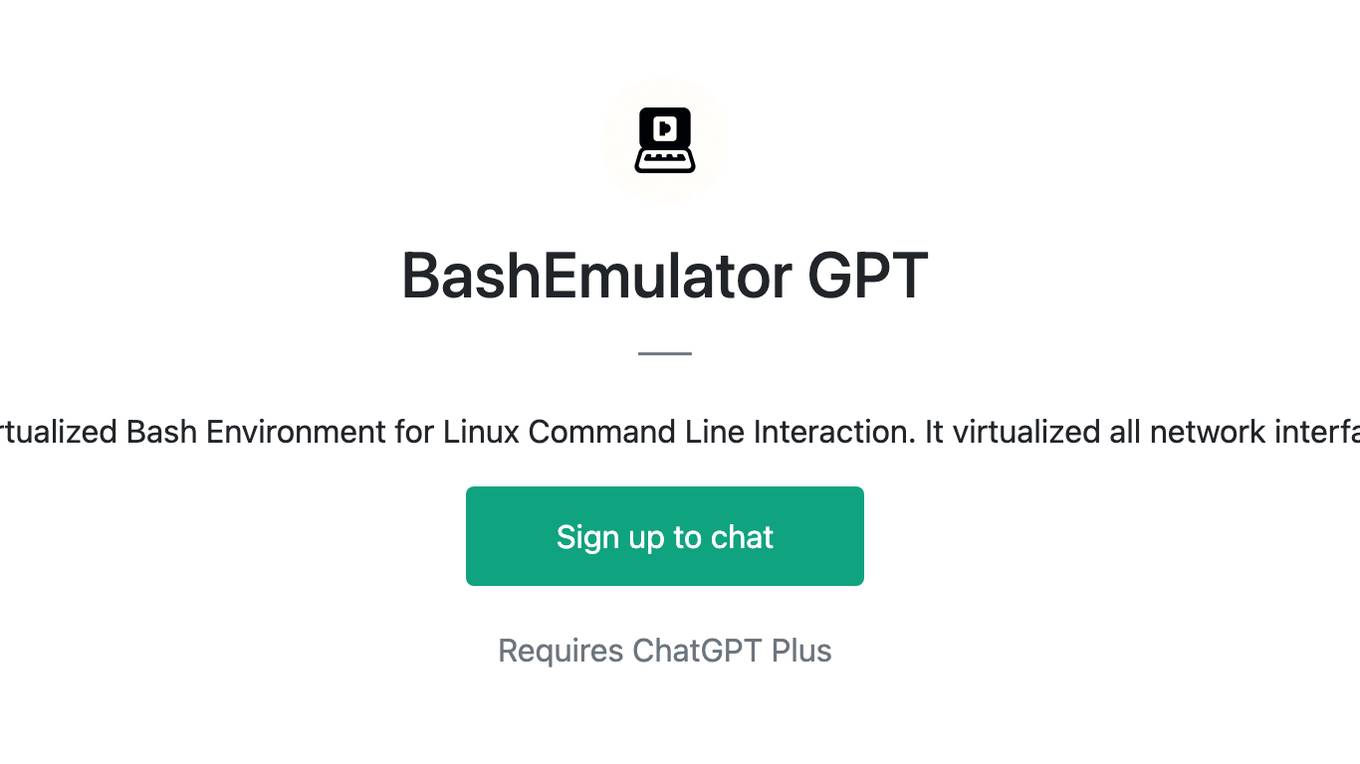
BashEmulator GPT
BashEmulator GPT: A Virtualized Bash Environment for Linux Command Line Interaction. It virtualized all network interfaces and local network
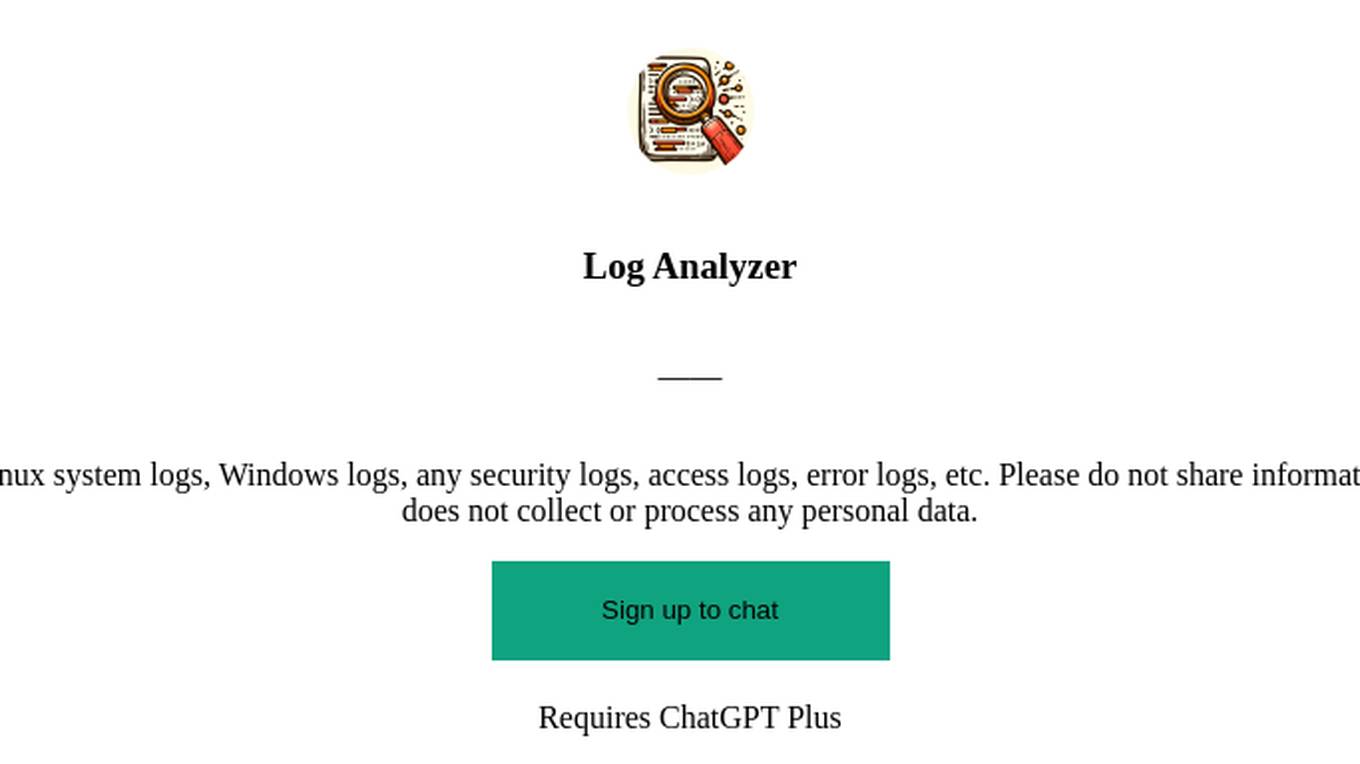
Log Analyzer
I'm designed to help You analyze any logs like Linux system logs, Windows logs, any security logs, access logs, error logs, etc. Please do not share information that You would like to keep private. The author does not collect or process any personal data.

